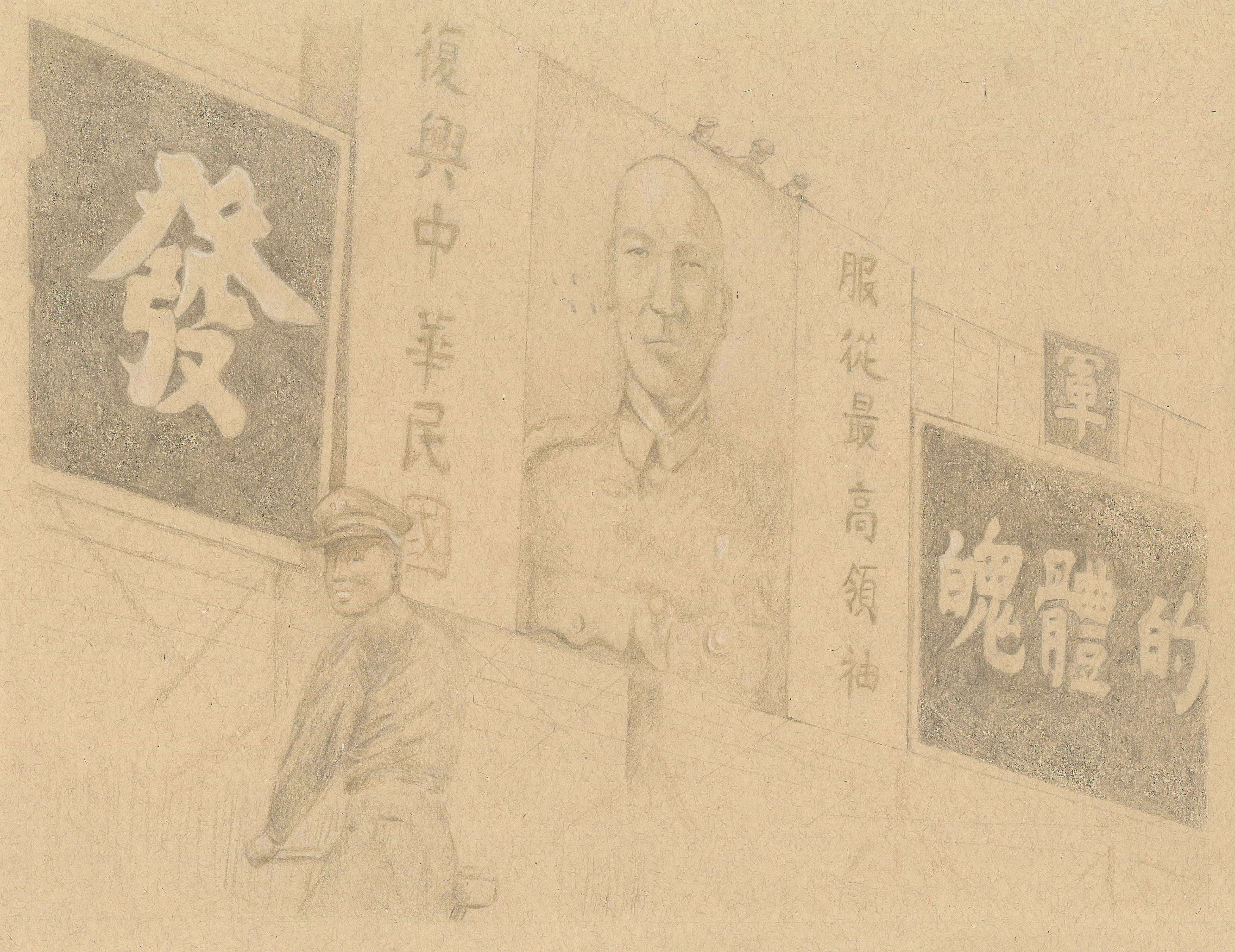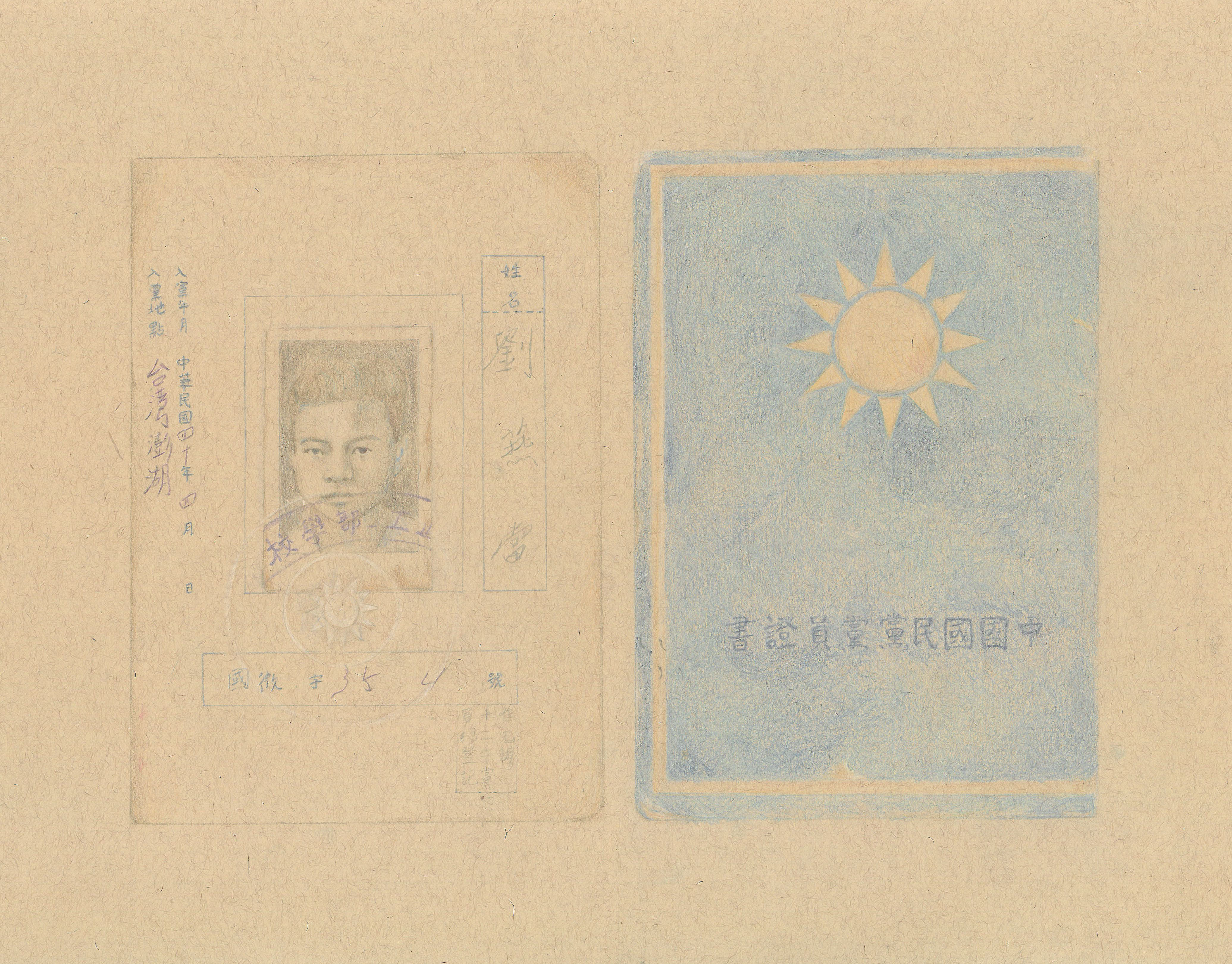

Chin-Jie Melodie Liu, Our Supreme Leader (left)(2020) and Loyalty For All (right)(2020),
colour pencil on Strathmore Toned Tan paper (118 gsm), 27.9 x 35.56 cm each.
I had one when I was in school, and all of my classmates had it too. Everyone had to follow the system blindly, it was nothing special. There were military instructors present to make sure we all signed on [to the membership].
During the
martial law
Martial law was in place in Taiwan from 1949 to 1987. Under martial law, civilians’
freedom was severely restricted; mass media was state-controlled and excessive force was used to supress political dissident
, most citizens held Kuomintang Party (KMT) 國民黨
The Kuomintang Party, also known as the Chinese Nationalist Party, was the dominant political party to rule China from 1928 to 1949 after the final imperial dynasty, the Qing Dynasty (1644-1912). The party retreated to Taiwan following their defeat in the Chinese Civil War and ruled the island from 1949 to 2000.
memberships, regardless of their ethnic background, to ensure obedience and loyalty to the government. In the form of a booklet, the membership includes a section on the values of the party with a portrait

Sun Yat-sen 孫中山
Sun Yat-sen (1866-1925) was the founder and first leader of the KMT. Sun was a revolutionary leader who manifested the anti-imperial uprising to form the foundations of modern China. His nationalist and democratic ideology of ‘The Three Principles of
the People’ (San Min Zhu Yi 三⺠民主義) was adopted and heavily promoted by the KMT in Taiwan.
alongside
Chiang Kai-shek 蔣介石
Chiang Kai-shek (1887-1975) was the President of China (1928-38; 1943-49) and later President of Taiwan (1950-1975), both of which he led under the Kuomingtang Party (KMT). Chiang retreated from mainland China with his troops after the current Peking (Beijing) was seized by the Communists in 1949.
. Each members’ headshot and basic information is recorded, as well as the number of meetings they attended. This KMT membership is significant to my
waisheng 外省
Waisheng (adjective), refers to the culture of waishengren (the two million refugees who fled with the Kuomintang Party from mainland China to Taiwan in 1949).
family as it marks my paternal grandfather’s journey from mainland China to Taiwan. Joining the KMT and its military presented an opportunity to escape war-torn China and rebuild his future.